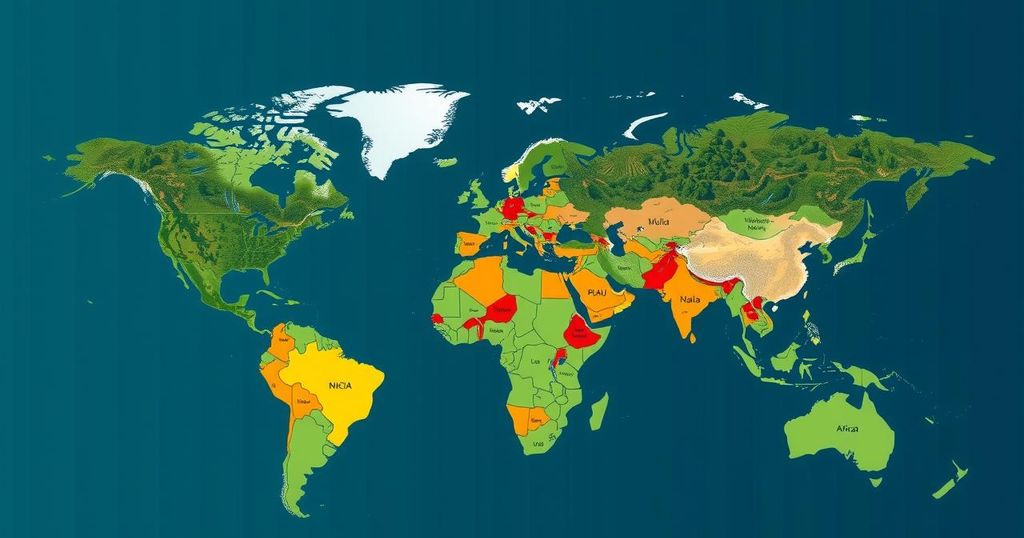Richer nations are beginning to financially compensate poorer ones for damages caused by climate change, exemplified by the experience of Christopher Bingala in Malawi. Following Cyclone Freddy, Bingala used $750 in aid to rebuild his home, part of a broader ‘loss and damage’ funding initiative designed to assist low-income countries confronting severe climate impacts. Despite $720 million pledged, experts warn that ongoing financial commitments are critical to addressing future climate-related challenges effectively.
Richer nations have embarked on compensating poorer countries for climate change-related damages, highlighted by the case of Christopher Bingala, a subsistence farmer in Malawi. During Cyclone Freddy, which devastated Southern Africa in 2023, Bingala lost his home and livestock, prompting an urgent need for assistance. Upon receiving approximately $750, he was able to rebuild his home, marking a significant step towards ‘loss and damage’ funding, a program initiated to aid low-income nations that disproportionately suffer from climate-induced catastrophes despite contributing minimally to global greenhouse gas emissions.
So far, approximately $720 million has been pledged by wealthier nations, including the European Union and the United States; however, experts caution this amount is inadequate given the increasing frequency and severity of climate events. At the ongoing COP29 climate summit in Baku, discussions revolve around establishing a comprehensive climate finance framework, as emphasized by Philip Davis, Prime Minister of the Commonwealth of the Bahamas, who calls for accountability from industrialized nations responsible for emissions.
Malawi alone has seen significant devastation due to Cyclone Freddy, which displaced over 650,000 individuals, leading to food shortages and considerable hardship. Bingala’s initial struggles after the cyclone faded with the assistance received, allowing him to relocate his family to safer and more stable grounds. Although the program represents a pilot project for broader loss and damage funding initiatives, many other low-income communities remain vulnerable with minimal safety nets.
The funding initiative, spearheaded by countries like Scotland, is critical as ongoing climate disasters impose severe financial strains on developing nations, with the financial implications of events like Hurricane Dorian in the Bahamas contributing to national debt increases. These restoration efforts highlight the pressing need for more substantial financial contributions from the global north and a reevaluation of criteria determining funding allocation. If unaddressed, the challenges of climate change are anticipated to escalate, potentially costing up to $250 billion annually by 2030.
The phenomenon of climate-induced disasters disproportionately affects lower-income countries, which often lack the necessary resources and infrastructure to recover. As wealthier nations industrialized, they contributed significantly to greenhouse gas emissions that have fueled climate change. Consequently, global discussions have led to the establishment of dedicated funds aimed at compensating less affluent nations for the losses incurred due to climate-related disasters. This initiative, often referred to as ‘loss and damage’ funding, seeks to address the historical and ongoing inequalities in climate impacts versus contributions.
In conclusion, the growing initiative for loss and damage funding underscores the urgent need for richer nations to assume an ethical obligation towards assisting poorer countries in climate recovery efforts. Current pledges, while a step in the right direction, are insufficient to meet soaring needs projected in the near future. It is imperative for international leaders to collaborate and refine approaches to ensure sustainable support mechanisms for the most vulnerable populations affected by climate change.
Original Source: www.delawarepublic.org






